Rice flour bread just as good
Call to master technology
by Dhaneshi Yatawara
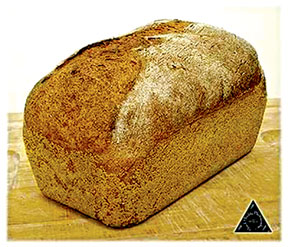 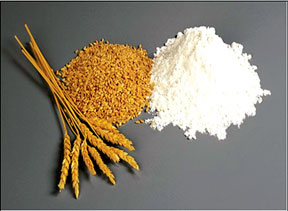 Being the second staple food among Sri Lankans, bread plays a key
role in the consumer market. As the wheat flour prices started
skyrocketing at the world market, we, as a developing country started
facing considerable changes in our own lives and our ways of living. Being the second staple food among Sri Lankans, bread plays a key
role in the consumer market. As the wheat flour prices started
skyrocketing at the world market, we, as a developing country started
facing considerable changes in our own lives and our ways of living.
"We face a 20% decrease in selling bread in all our outlets during
the few days after the price increase of wheat flour," a higher official
of a leading bakery company told the Sunday Observer, recently.
Bread consumption has dropped sharply following the increase in wheat
flour prices, market sources said. The drop in demand is clearly seen in
rural areas and traders and bakery owners said that the sale of bread
has declined by nearly 50 per cent.However, prices of other bakery
products have not been increased immediately after the wheat flour price
increase. Market sources said that these prices too will increase
gradually,.
With the immediate price hike of wheat flour by the Prima Company two
weeks ago, the new price of a loaf of bread (450 grams) is Rs.35. A loaf
of bread of 400 grams is Rs. 31. Buns and other flour products have also
been increased by Rs. 1.50 to Rs. 2. The price of one kilo of flour is
Rs. 64 which is an increase of Rs. 13.
Rice as an alternative
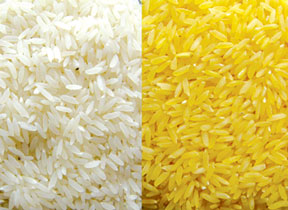  When questioned about what restricts the bakery owners from using
rice flour as an alternative to wheat flour Mr. Dassanayake said,
"Technically there is no problem in using rice flour. But what matters
is that if a small or medium scale bakery owner faces a failure by using
this new method in his first attempt he will not go for a second
experiment. It is difficult to afford." When questioned about what restricts the bakery owners from using
rice flour as an alternative to wheat flour Mr. Dassanayake said,
"Technically there is no problem in using rice flour. But what matters
is that if a small or medium scale bakery owner faces a failure by using
this new method in his first attempt he will not go for a second
experiment. It is difficult to afford."
He emphasized that the current workshops on introducing rice flour to
bakery industry have to be accelerated because the problem needs a
faster solution.
"Above all the public attitude towards rice flour bread has to be
changed. The Government should carry on a campaign to make the public
aware that rice flour bread is just like wheat flour bread and more
nutritious," he said.
What the bakery owners say...
"Prices of bakery goods too have to be increased with the increase of
wheat flour price. And many bakeries particularly in the rural areas are
able to cover their cost only since the last price hike," said Mr.
Parakrama Dassanayake, President of the Sri Lanka Bakery Owners'
Association.
"It is the medium and small scale bakery owners who will be affected
by this sharp price increase. With the price increase a few days ago,
the sale of bread had fallen by 20 per cent," Mr. Dassanayake said.
Mr. Dassanayake also said that soon after the earlier price hike,
prices of gas, fuel and margarine were raised. "The cost of a loaf of
bread rised to Rs. 33 with the new increase and bakeries cannot make any
profit in the current situation and they will be running their business
just covering up their expenses," he said. With the wheat flour price
increase a loaf of bread had to be increased by Rs.five.
"Large bakery owners functioning in urban areas at least can earn
through bakery products other than bread. But the people running medium
and small scale businesses will face greater difficulties as their
market is limited. Their main moving products would be bread, roasted
bread or buns," Mr. Dassanayake explained.
Alternatives.........
Create competition in the market. Government has already given the
green light to a Dubai based company to initiate wheat flour production.
The new high tech mill, located within the vicinity of the busy
Colombo port, will be an added advantage when controlling prices.At the
moment the Company is training its crew at their mother company in Dubai
since they have constructed the new mill in Sri Lanka according to state
of the art technology.
Secondly, absorbing the cost of duty the Government plans to import
wheat flour and cater the market - particularly the low income groups of
the society.
Competition could reduce prices
 "We have a 50,000 metric tonnes to 60,000 metric tonnes demand for
wheat monthly which costs approximately 7 - 8 billion rupees annually,"
Dr. R.M. Ratnayake Secretary to the Ministry of Trade affairs explained. "We have a 50,000 metric tonnes to 60,000 metric tonnes demand for
wheat monthly which costs approximately 7 - 8 billion rupees annually,"
Dr. R.M. Ratnayake Secretary to the Ministry of Trade affairs explained.
In Sri Lanka wheat grains are imported in large quantities, mainly by
the Prima Company - the only supplier of wheat flour in this island
nation. Wheat grain prices in the world market shot up by 25% per cent
within the past month causing wheat flour prices to follow suit with the
import price of a metric tonne rising by 15 to 20 dollars this month.
"Creating a competition in the market can lower the currently
prevailing prices and already there are plans in progress to create such
an environment," Dr. Rathnayake said. Further he explained that the
Government is planning to import wheat flour absorbing the cost of duty,
mainly catering to the lower income groups of the society.
Global environment effects on wheat flour price hike
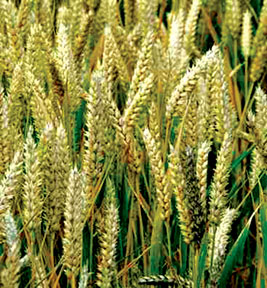 Unexpected weather conditions across the globe catered greatly to the
decrease in harvest eventually creating an increase in the wheat flour
price in the world market. Unexpected weather conditions across the globe catered greatly to the
decrease in harvest eventually creating an increase in the wheat flour
price in the world market.
Insufficient rainfall is blamed for affecting wheat harvests
worldwide except in China. As many news reports state, the London-based
International Grains Council have said world wheat production would
amount to 588 million tones in the 2006-07 cycle, a shortfall of 30
million tones (4.8 per cent) against the previous cycle and would not be
enough to meet the expected demand of 607 million tones. The figures
have not take into account the alarming news from Australia where wheat
production appears to suffer a 50 per cent shortfall because of low
rainfall.
The less there is of something the more it costs.
Wheat harvest has drastically dropped worldwide due to these adverse
environmental conditions. This tragic situation was experienced by key
wheat producing countries such as America, Canada and Australia. Harvest
in China has depleted by recent floods and droughts.
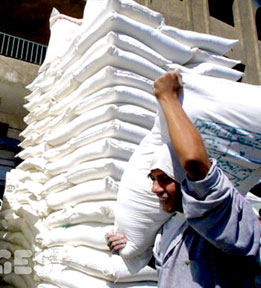 According to recently published agency reports from Australia, the
Australian Bureau of Agricultural and Resources Economics have said
output in the harvest that begins in October might be only 15.5 million
tonnes compared with its earlier forecast of 22.5 million tonnes. According to recently published agency reports from Australia, the
Australian Bureau of Agricultural and Resources Economics have said
output in the harvest that begins in October might be only 15.5 million
tonnes compared with its earlier forecast of 22.5 million tonnes.
Prices have soared on the back of fast growing demand and a series of
poor harvests in countries around the world. Experts believe that added
to the environmental factor the demand for crops has surged for two main
reasons: rising demand from emerging markets where higher protein diets
are increasing and the need for feed stocks.
As ending stocks reaching historical low levels, rising costs of
production and the comeback of inflation in the real economy,
agricultural commodity prices are reaching levels never seen before. |
